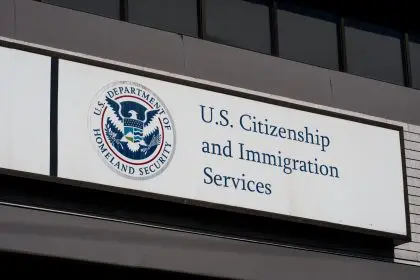In a pivotal legal development, a federal judge has moved to block Elon Musk‘s Department of Government Efficiency (DOGE) from accessing sensitive Treasury Department records, marking a significant victory for privacy advocates and state officials concerned about data security.
Federal court intervenes in unprecedented data access dispute
Critical ruling halts access
U.S. District Judge Paul A. Engelmayer issued a preliminary injunction that requires DOGE to cease accessing Treasury Department systems containing personal taxpayer information. The ruling, delivered in New York’s Southern District, mandates the immediate destruction of any downloaded materials dating back to January 20.
State-led coalition challenges federal overreach
The legal challenge, spearheaded by 19 state attorneys general, contends that the Treasury Department overstepped its authority by granting DOGE access to its central payment system. At the heart of the dispute lies the protection of millions of Americans’ sensitive data, including Social Security numbers and banking details.
New York Attorney General Letitia James has emerged as a leading voice in the opposition, expressing grave concerns about unauthorized access to critical government systems. Her office reports an overwhelming response from constituents worried about potential privacy breaches and disruption to essential government services.
Privacy implications raise national security concerns
System vulnerability assessment
Security experts warn that allowing private entities access to federal payment systems could create unprecedented vulnerabilities. The Treasury Department’s central payment system processes billions of dollars in federal disbursements annually, including healthcare benefits, childcare subsidies, and other crucial social services.
The controversy has drawn attention to broader questions about government data protection protocols and the involvement of private sector figures in sensitive government operations. Critics argue that the arrangement bypasses established federal privacy safeguards and potentially compromises national security interests.
Legal framework challenges traditional boundaries
Constitutional considerations
The case highlights complex questions about executive authority and privacy protections. Legal scholars note that this situation tests the boundaries between private sector involvement in government operations and constitutional requirements for data protection.
The American Civil Liberties Union has intensified scrutiny of the matter, calling for congressional oversight of potential privacy violations. Their involvement underscores growing concerns about the intersection of technology, privacy rights, and government accountability.
Impact on federal programs faces scrutiny
The implications of this legal battle extend beyond immediate privacy concerns to the operational integrity of federal assistance programs. State officials argue that unauthorized system access could disrupt critical services that millions of Americans depend on for basic needs.
Treasury Department protocols typically require strict vetting and security clearances for system access. Critics contend that traditional safeguards were circumvented in this case, raising questions about the decision-making process that led to DOGE’s involvement.
Looking ahead
As this legal battle unfolds, the case may establish important precedents for future government data access and privacy protection standards. The outcome could influence how federal agencies balance technological innovation with privacy safeguards in an increasingly digital government landscape.
State attorneys general anticipate further legal developments as they seek permanent protections against unauthorized access to sensitive government systems. The case represents a critical juncture in the ongoing debate over privacy rights, government efficiency, and the role of private sector actors in federal operations.
This high-stakes legal confrontation illuminates broader challenges facing government data protection in an era of increasing technological integration. As courts grapple with these complex issues, the resolution of this case may shape future policies governing access to sensitive government information and systems.















